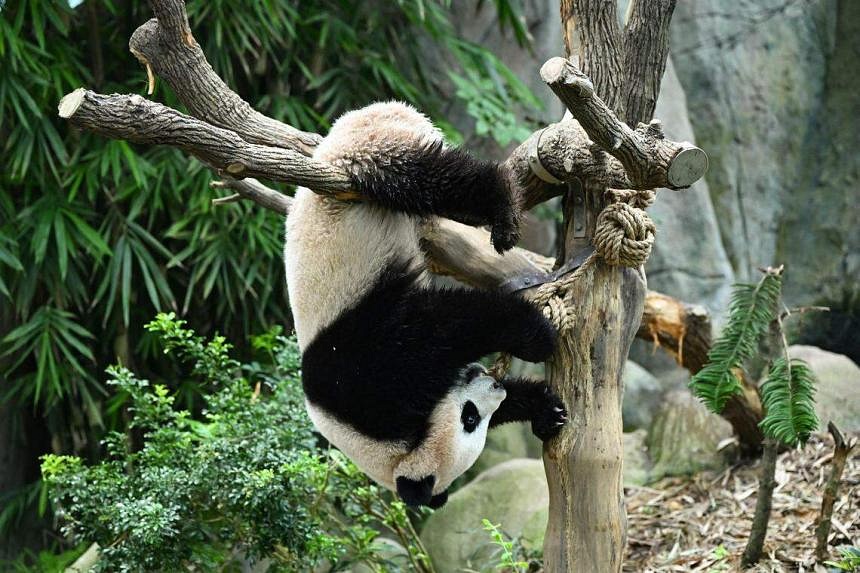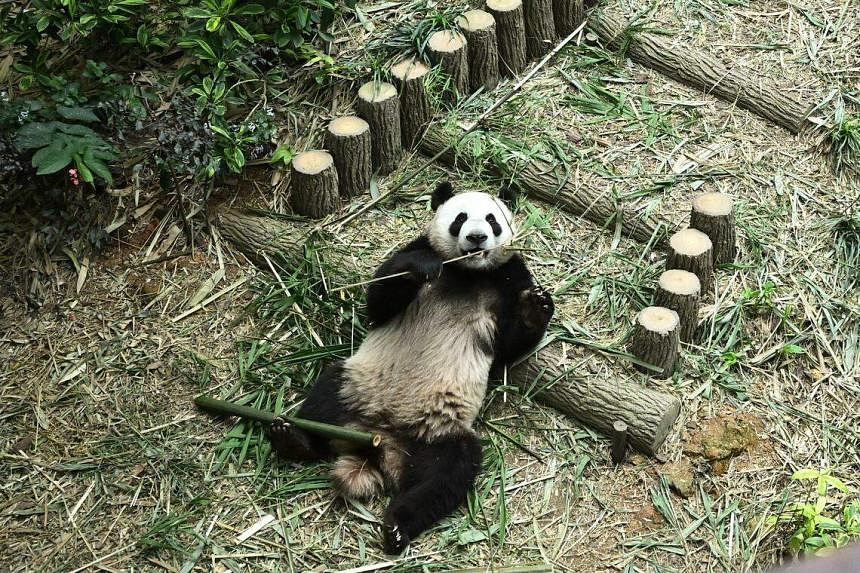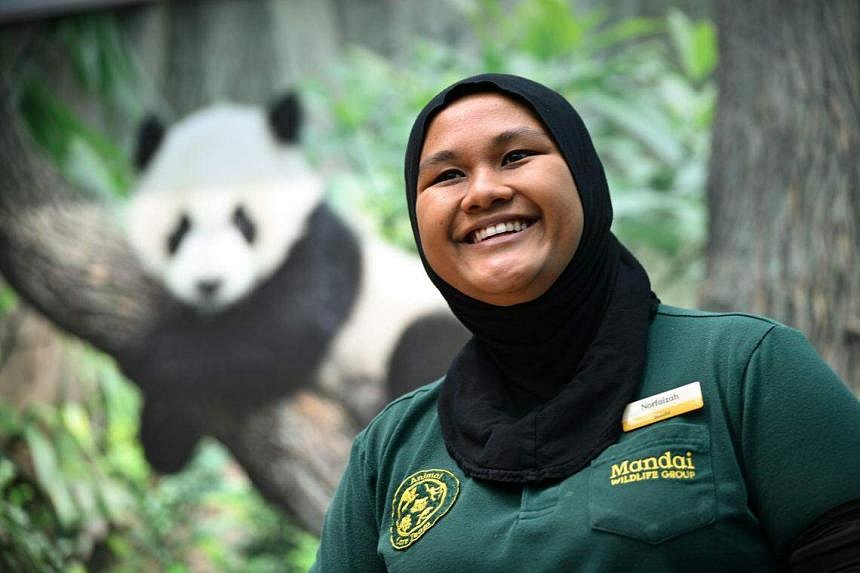'He holds a special place in our hearts': Le Le's keepers look back on their time with Singapore's first panda cub


SINGAPORE - When panda keeper Sim Pei Ying saw Le Le for the first time in August 2021, he was just a “cute, tiny, pink” cub barely bigger than a mouse.
The cub was “palm-sized”, said Ms Sim, a senior keeper at Mandai Wildlife Group who has been taking care of the River Wonders’ giant pandas for the past decade.
Two years on, Le Le has reached adolescence, growing into a playful panda cub with a taste for bamboo, carrots and apples.
Watching him grow and mature is a thing of pride for Le Le’s keepers, but it is also bittersweet, as it means the cub will have to move to China, where he will join the country’s panda-breeding programme.
Le Le, who was born to father Kai Kai and mother Jia Jia on Aug 14, 2021, will leave for China on Jan 16, 2024. The last day the public can see him is Dec 13.
The Straits Times interviewed two keepers from the animal care team at River Wonders ahead of Le Le’s departure, and they shared fond memories of their time caring for the first panda cub to be born in Singapore.
Under the terms of Chinese panda loan agreements, cubs born on foreign soil are usually returned to China when they turn two.
“We are sad, but it is a relief to know that he has been progressing so well... He is Singapore’s first giant panda cub, so he definitely holds a special place in all of our hearts,” said Ms Sim, 32.
She ticked off his milestones, which include Le Le taking his first steps, celebrating his first and second birthdays, learning how to climb, and making his debut in the main exhibit.
She remembers how he would make a “cute, whiny” sound because he wanted the keepers to feed him before his mother, and how he kept falling whenever he played in the jungle gym that his keepers made specially for him to hone his climbing skills.
He would chase his keepers around the den when he was less than a year old. It was “like a real-life fur toy chasing me around the den”, said Ms Sim.
Among Le Le’s varied antics, keeper Norfaizah Abdul Aziz will miss his acrobatics – when he would hang upside down on trees in the exhibit – the most.
“It is very funny to see his ‘acrobatic show’. We never trained him to hang upside down, but he does it on his own,” said the 30-year-old, who has been taking care of the giant pandas since 2015.

The keepers said he has personality traits from both his parents.
Like his father, Le Le is not fazed by loud noises, such as screaming young children. Pandas can get stressed out by noise and will leave the exhibit for their private den if it gets too noisy, said Ms Norfaizah.
“But Le Le does not care, and will continue to eat and sleep like Kai Kai does,” she said.
He even sits and eats the same way as his father – reclining comfortably while chomping away on bamboo.
And when it comes to learning new skills, Le Le is lightning quick like his mother.
Like mum, he is “very clever” and takes only a few weeks to pick up new tricks, said Ms Sim. His father, on the other hand, can sometimes take months to learn the same things.

Naturally, Le Le’s carers are sad that he will leave soon.
“We are all sad, but it is part of natural progression for him to go to China,” said Ms Sim. “At the same time, we are happy that he is becoming more independent… It is a bittersweet moment for me.”
Ms Norfaizah said the keepers here will brief their counterparts in China about Le Le. This will include telling them about his favourite activities, his health and medical history, and the commands they use.

On Dec 14, the Singapore-born cub will begin his 4½-week quarantine before he gets on a plane for China.
During that time, the keepers will do health checks, including sampling his blood to screen for diseases, and making sure he is in top shape for the journey.
Ms Sim said: “I think when the day comes for him to go into the crate, it will be quite an emotional moment for all of us. I guess we may be huddling and crying together.”
This article was first published in The Straits Times. Permission required for reproduction.